ELIZABETH II

Antisemitism Prevention Act 2020
2020 CHAPTER 14
An Act to counter and prevent antisemitism, both on- and offline in the United Kingdom.| Bill ID | B039 |
|---|---|
| Author(s) | |
| Amended by | |
| First reading | 2020 July 3 |
| Royal assent | 2020 September 26 |
| Commencement | 2020 September 26 |
| Affected legislation | N/A |
Be it enacted by the Queen's most Excellent Majesty, by and with the advice and consent of the Lords Spiritual and Temporal, and Commons, in this present Parliament assembled, and by the authority of the same, as follows:
1 Definitions
- “Antisemitism” is defined as a certain perception of Jews, which may be expressed as hatred toward Jews. Rhetorical and physical manifestations of antisemitism are directed toward Jewish or non-Jewish individuals and/or their property, toward Jewish community institutions and religious facilities, including but not limited to the actions defined in Schedule 1.
2 Guidelines and regulations for anti-semitism online
- The Department for Women and Equalities, alongside the Department for Digital, Culture, Media and Sport, shall assess, upon complaint, whether online influencers of any kind have published content that displays antisemitism or has shown any other form of discriminatory behaviour against those protected under the Equalities Act of 2010.
- The Government Equalities Office, alongside the Government Digital, Culture, Media, and Sport office, shall assess, upon complaint, whether online influencers of any kind on any platform have published content that violates the definition of antisemitism or has shown any other form of discriminatory behaviour against those protected under the Equalities Act of 2010.
- The Government Equalities Office, alongside the Government Digital, Culture, Media, and Sport office, to take action if online influencers are found to have contravened these rules through warnings, financial penalties if they are under jurisdiction of United Kingdom Law, and in the case of extreme breaches of failure to show contrition, requesting youtube to block videos or take down channels. Those under British jurisdiction would be liable to penalties and fines for failure to comply with the guidance of the ECHR. The British Government reserves the right to block digital content if digital companies does not comply with the judgement of HM Government.
- The Government Equalities Office, alongside the Government Digital, Culture, Media, and Sport office, is instructed to undertake a full review of the proliferation of antisemitic sentiment online and alt-right radicalisation, to be referred to the prevent programme for further action against radicalisation online.
- The Secretary of State may compel any website or application allowing the upload of online content visible to the public to remove content that promotes antisemitism.
- The Department for Women and Equalities, alongside the Department for Digital, Culture, Media and Sport, is instructed to undertake a full review of the proliferation of antisemitic sentiment online and alt-right radicalisation, to be referred to the Prevent programme for further action against radicalisation online.
- The Department for Women and Equalities and the Department for Digital, Culture, Media and Sport are only to take up the responsibilities aforementioned in this section following an increase in funding for said departments provided in a future budget for the explicit purpose of facilitating said responsibilities.
3 Anti Semitism in British Political Parties
- The Equality and Human Rights Commission is hereby asked to investigate the current proliferation in anti-semitism within all United Kingdom major political parties, with the goal of crafting a set of guidelines for parliament and political parties and recommending steps to combat and mitigate antisemitism.
4 Commencement and extent
- This Act applies to the entirety of the United Kingdom.
- This Act may be cited as the Antisemitism Prevention Act 2020.
- This Act comes into force upon royal assent.
Schedule 1: Examples of Antisemitism
The following actions are deemed as examples of antisemitism for the purposes of this Act:
- Calling for, aiding, or justifying the killing or harming of Jews in the name of a radical ideology or an extremist view of religion.
- Making mendacious, dehumanizing, demonizing, or stereotypical allegations about Jews as such or the power of Jews as collective — such as, especially but not exclusively, the myth about a world Jewish conspiracy or of Jews controlling the media, economy, government or other societal institutions.
- Accusing Jews as a people of being responsible for real or imagined wrongdoing committed by a single Jewish person or group, or even for acts committed by non-Jews.
- Denying the fact, scope, mechanisms (e.g. gas chambers) or intentionality of the genocide of the Jewish people at the hands of National Socialist Germany and its supporters and accomplices during World War II (the Holocaust).
- Accusing the Jews as a people, or Israel as a state, of inventing or exaggerating the Holocaust.
- Accusing Jewish citizens of being more loyal to Israel, or to the alleged priorities of Jews worldwide, than to the interests of their own nations.
- Denying the Jewish people their right to self-determination, e.g., by claiming that the existence of a State of Israel is a racist endeavor.
- Applying double standards by requiring of it a behavior not expected or demanded of any other democratic nation.
- Using the symbols and images associated with classic antisemitism (e.g., claims of Jews killing Jesus or blood libel) to characterize Israel or Israelis.
- Drawing comparisons of contemporary Israeli policy to that of the Nazis.
- Holding Jews collectively responsible for actions of the state of Israel.